As you probably already know, cats make a variety of noises. Some breeds, such as Siamese cats, are known to be naturally noisy, but any cat can meow loudly for a number of reasons.
Although you may find excessively loud meowing to be annoying, it may also be an indication that your cat isn't feeling well.
Pay attention to your cat and what else is happening while it's crying. If you can figure out the reason for your kitty's loud meowing, you might just be able to stop it.
Why Do Cats Meow Loudly?
Aside from body language, meows are a cat's primary mode of communication. A meow can come in many forms and for many different reasons. Most healthy cats are usually attempting to communicate something when they meow. For instance, your cat may be trying to tell you that it's hungry, stressed out, scared, excited, or that it simply wants some of your time and attention.
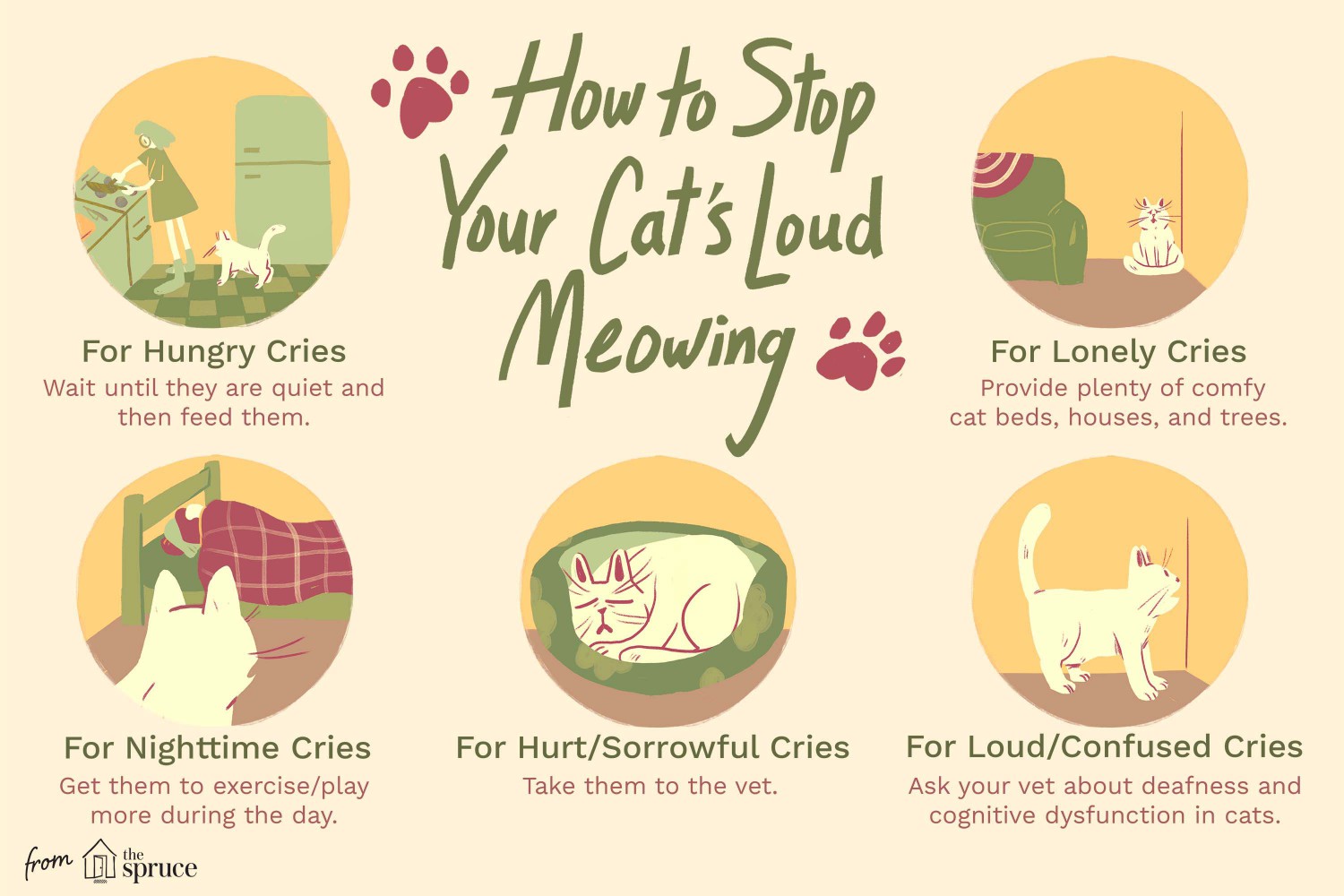
The Spruce / Emilie Dunphy
Meows may also sound slightly different from one another based on the reasons behind them:
- Scared or angry meows are typically louder than other types of meows. These meows can be somewhat intense and frightening at times and, depending on the source of your cat's fright or anger, either short-lived or prolonged.
- Meows or cries in response to pain may also be loud and are an obvious sign that your cat is in distress. Quite often, this type of meow is low-pitched and mournful sounding. It may be repeated throughout the day or only when your cat is engaged in a specific activity that causes pain, such as trying to use the litter box.
- Hungry meows usually go along with being excited. If your cat hears a treat bag crinkling, the can opener buzzing, or food bowls clanging, it may come running and start meowing out of excitement. Then again, if your cat knows it's mealtime and you're distracted by something else, the reminder meows will likely get louder with each passing minute.
- Attention-seeking meows are indications that your cat may want to play with you or be petted. For example, your cat may get excited and meow loudly when you return home from work.
- Many cat owners are also familiar with night meows; if your cat is nocturnal, it may meow loudly while you're trying to sleep to induce you to play.
Deafness
Some cats are born deaf, whereas others may become deaf over time. A deaf cat may not even realize it's making a sound when it meows. This makes it very difficult to interpret what the cat is trying to tell you through its vocalizations.
A deaf cat's meows are often much louder than those of a non-deaf cat as well because it doesn't know it's deaf and can't control the volume of its voice. This might be really obvious when your deaf cat can’t see you and is trying to find you.
Cognitive Dysfunction
Similar to people who have Alzheimer’s disease, your pets can develop cognitive dysfunction as they get older. As a disease process, it's not completely understood. But it may cause your cat to appear confused and to vocalize more than it used to. Some cognitively dysfunctional cats also stare while meowing loudly, especially at night.
How to Stop Loud Meowing
If you think you may have pinpointed the reason for your cat's loud meowing, then you may be able to stop it by making a few changes to its routine and environment.
- A hungry cat will continue to meow loudly whenever it's hungry if you reward its cries with food or treats. To reduce the incidence of—or stop—these types of loud meows, try to ignore your cat's demands for food and wait until it's quiet to feed it.
- Healthy cats that routinely meow loudly at night outside your bedroom door may need to burn off some extra energy. To decrease the frequency of this attention-seeking meowing, be sure to wear your cat out with toys and exercise during the day.
- If you suspect that your cat is trying to tell you that it's hurt or that something doesn’t feel right, have it checked by your vet as soon as possible.
- You'll also want to talk with your vet if you suspect that your cat has developed deafness or cognitive dysfunction, or is meowing loudly for no apparent reason. Deafness may be temporary due to an ear infection or another issue that can be treated, but if it's ignored for a long time, it could become permanent. Although cognitive dysfunction in cats isn't curable, it may be palliatively treatable with nutritional supplements, dietary changes to offer support for your cat’s aging brain, night-lights to reduce disorientation, anxiety-reducing pheromones, or other techniques. However, you may have to accept some amount of loud meowing as a fixture in your life.
- If your cat meows loudly when it's left alone, it may simply need to be comforted. Make sure you don’t accidentally lock it in a closet or bathroom if it's easily frightened. And provide your scaredy-cat with plenty of options for comfort, such as cozy beds, cat houses, and upholstered cat trees. You can also consider using calming pheromones in the areas where your cat likes to hang out.
Related Article

How to Dispose of Cat Litter
How should you dispose of cat litter? Similar to the old idiom of what goes up must come down, what
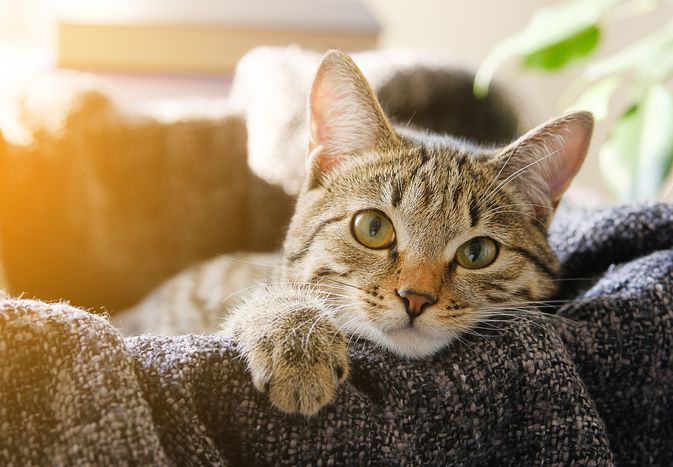
How to Stop a Cat from Spraying
House soiling, or eliminating outside of the litter box, is one of the most common issues for cat p
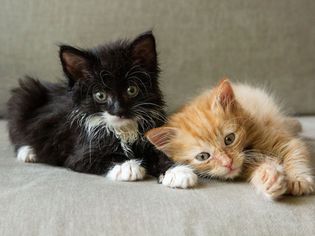
How to Socialize Your Kitten
All kittens require early socialization in order to become good pets. It helps kittens learn to int
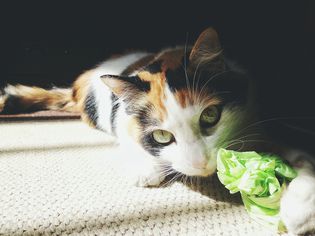
Why Cats Eat and Chew on Plastic
Some cats are a lot like puppies and enjoy chewing on objects. Plastic items are some of those obje
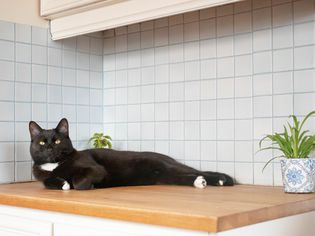
How to Keep Your Cat Off the Kitchen Counters
Keeping your cat off the kitchen counters isn't just a way to prevent spills—it could also he
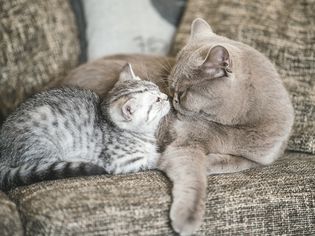
Introducing a Kitten to an Older Cat
Friendly, single adult cats can have trouble adjusting to living with a new kitten. Often, the olde
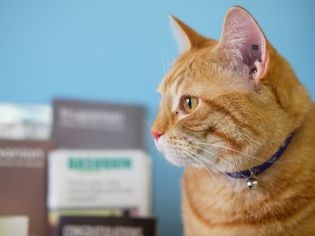
Coronavirus in Cats
Feline coronavirus (FCoV) is a common multi-strain virus that affects cats. It rarely causes seriou

Oriental Longhair: Cat Breed Profile, Characteristics & Care
The elegantly built oriental longhair, also known as the British angora, resembles its relative the
About FleaFree Feline
We are a premier digital platform committed to delivering high-quality content to our readers. Our mission is to provide accurate, reliable, and engaging information that adds value to our audience's daily lives.
Our team consists of experienced content creators and subject matter experts who uphold the highest standards of professionalism. In an era of information overload, we curate content with care, ensuring our users receive only the most relevant and trustworthy information.
Beyond just reporting facts, we focus on depth and context. Through expert analysis, comprehensive research, and clear presentation, we help our audience gain meaningful insights and make informed decisions.
We take pride in being a trusted information source for our growing community of readers. Our user-first approach means we continuously adapt to provide content that meets our audience's evolving needs and interests.
Innovation and excellence drive everything we do. We're committed to improving our platform and services to deliver the best possible experience for our users.


Comments on " How to Stop Loud Meowing in Cats" :